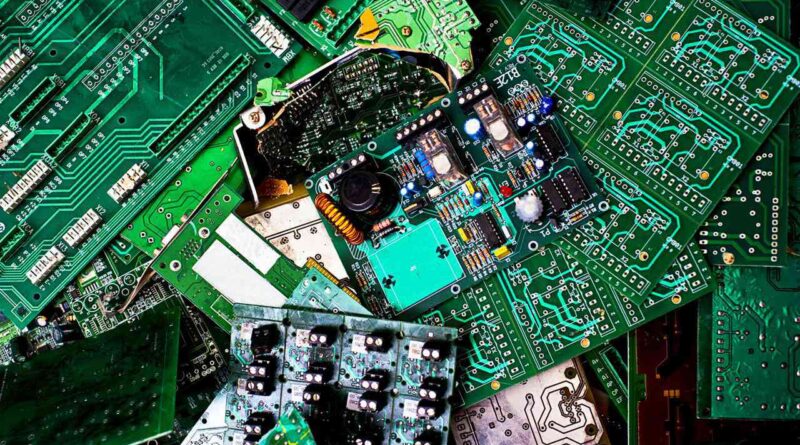Electronics Recycling: Why it Matters
Introduction
In our technology-driven world, electronic devices have become an integral part of daily life, yet the end of their lifecycle presents a critical environmental challenge. Electronics recycling, or e-waste management, addresses the burgeoning issue of discarded electronic gadgets that accumulate globally each year. This blog post aims to delve into the significance of electronics recycling, illuminating both the imperative need for responsible e-waste disposal and the effective methods to it. By understanding and participating in electronics recycling, we can mitigate the environmental impact and contribute to a more sustainable future.
Understanding E-Waste
Electronic waste, commonly referred to as e-waste, encompasses all discarded electronic devices, from smartphones and computers to televisions and beyond. Globally, it is estimated that millions of tons of e-waste are generated annually, a figure that only continues to grow as technology evolves and device lifespans shorten. These electronics are composed of a complex mix of materials including valuable metals like gold and copper, hazardous substances such as lead and mercury, and a variety of plastics. Each of these components can have a distinct and lasting impact on the environment if not managed properly.
The Impact of E-Waste on the Environment
When e-waste is improperly disposed of, it poses significant risks to the environment. Toxic substances from decomposing electronics can leach into the soil, contaminating groundwater and surface waters, and releasing harmful chemicals into the atmosphere. This pollution can have detrimental effects on local ecosystems and biodiversity, impacting plant and animal life and potentially entering the human food chain. For example, lead and mercury can cause serious health issues in both wildlife and humans, while plastic components contribute to the broader problem of microplastics in our oceans. Thus, the improper management of e-waste not only contributes to environmental degradation but also threatens public health and ecological balance.
The Economic Benefits of Recycling Electronics
Recycling electronics not only mitigates environmental damage but also fosters significant economic growth. By reprocessing old electronics, the industry creates numerous job opportunities in both recycling and refurbishment sectors. These jobs range from collection and sorting to more technical positions involving the repair and repurposing of electronic components. Moreover, the recovery of valuable materials such as gold, silver, copper, and rare earth metals from old electronics can be highly profitable. These recovered materials can be reused in the manufacturing of new products, reducing the need for virgin resources and lowering the environmental footprint associated with mining and processing.
Health Implications
The improper disposal and informal recycling of e-waste pose considerable health risks to both individuals and communities. Workers in unregulated e-waste recycling centers are often exposed to hazardous materials without adequate protective measures. This exposure can lead to serious health problems, including respiratory issues, skin burns, and long-term diseases such as cancer and neurological damage. The broader community may also suffer from these health risks as toxins from e-waste contaminate air, water, and soil, leading to widespread environmental health issues.
Global Legislation on Electronics Recycling
Globally, the approach to electronics recycling is governed by a variety of regulations and laws that aim to control the management and disposal of e-waste. The European Union (EU) leads with stringent regulations such as the Waste Electrical and Electronic Equipment Directive (WEEE), which mandates the collection, recycling, and recovery of electronic wastes. The United States, while lacking a comprehensive federal e-waste law, has various state-level regulations that promote e-waste recycling. In contrast, many Asian countries are still developing their regulatory frameworks, though nations like Japan and South Korea have made significant progress in e-waste legislation. International bodies and governmental agencies play crucial roles in enhancing global efforts to manage e-waste, striving to unify the diverse approaches and improve overall effectiveness in e-waste management practices. This legislation not only helps mitigate environmental harm but also supports the recycling industry by setting standards and creating economic incentives for proper e-waste disposal.
Practical Ways to Recycle Electronics
Recycling electronics responsibly is crucial for reducing environmental impact and conserving resources. Here are some practical tips for individuals looking to recycle their old electronics:
- Research Local Recycling Options: Many municipalities have specific programs for electronics recycling. Contact your local waste management services to find out what options are available in your area.
- Utilize Retailer Take-Back Programs: Many electronics retailers offer take-back programs that allow consumers to return used devices. Companies like Best Buy, Apple, and Staples have programs that make recycling your old electronics convenient.
- Donate for Reuse: If your electronics are still functional, consider donating them to schools, nonprofits, or charitable organizations that could benefit from their use. This not only extends the life of the electronics but also supports community development.
- Consider Manufacturer Programs: Some manufacturers offer mail-in programs or other recycling options for their products. This can be a great way to ensure that your electronics are handled responsibly.
- Data Security: Before recycling any electronic device, ensure that all personal data is completely erased. Use data wiping software to overwrite the data, restore the device to factory settings, or remove and physically destroy the hard drive if necessary.
Case Studies and Success Stories
Several countries and companies have achieved remarkable success in managing e-waste:
- Sweden’s Incentive Programs: Sweden has implemented a tax reduction policy for repairs on electronics, encouraging people to fix rather than discard their devices. This initiative has significantly reduced the volume of e-waste the country generates annually.
- Dell’s Closed-Loop Recycling: Dell has developed an innovative closed-loop recycling system where it reuses recycled plastics from old devices into new ones. This not only reduces waste but also decreases the need for virgin plastic materials.
- Japan’s Home Appliance Recycling Law: Japan enforces a home appliance recycling law requiring consumers and manufacturers to participate in the recycling of electronic appliances. This law has dramatically increased the country’s recycling rates and set a global standard for e-waste management.
Conclusion
Throughout this blog post, we’ve explored the critical issue of electronics recycling from multiple angles. We’ve defined e-waste, examined its environmental and health impacts, discussed economic benefits, and provided practical advice on how individuals can recycle electronics responsibly. It’s clear that the reasons to engage in electronics recycling extend beyond environmental concerns; they also include substantial economic benefits and crucial health implications.
As we conclude, let’s reinforce the importance of our collective responsibility in this endeavor. Every device recycled is a step toward a healthier planet and a sustainable future. Therefore, I encourage each reader to actively participate in responsible electronics disposal and recycling initiatives. By doing so, we not only safeguard our environment but also contribute to a circular economy that benefits all. Let’s commit to being part of the solution for a greener tomorrow.




